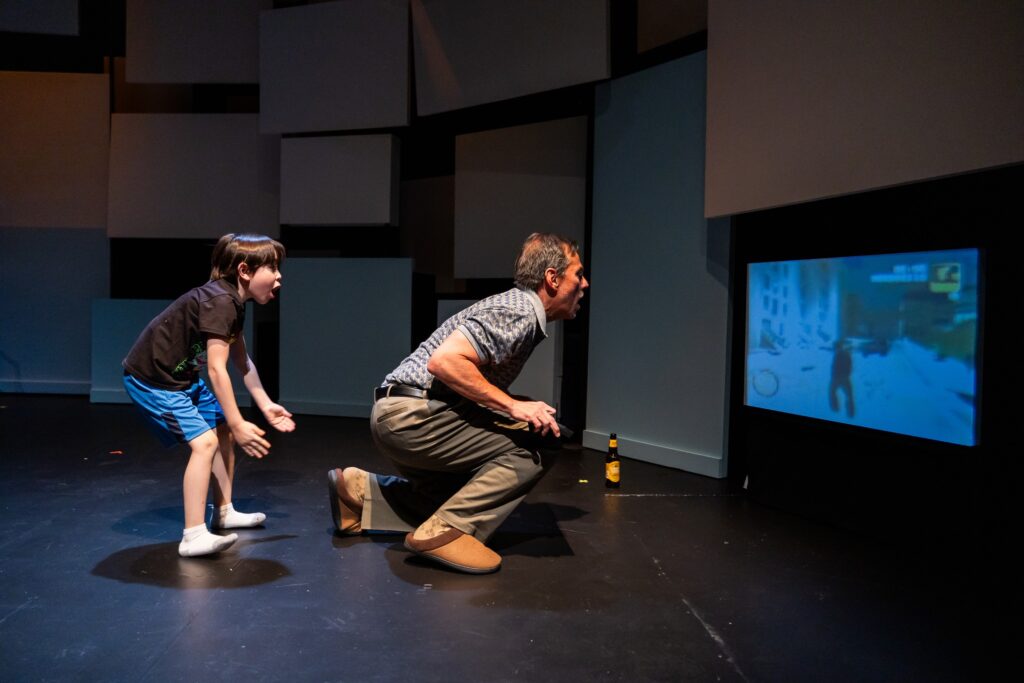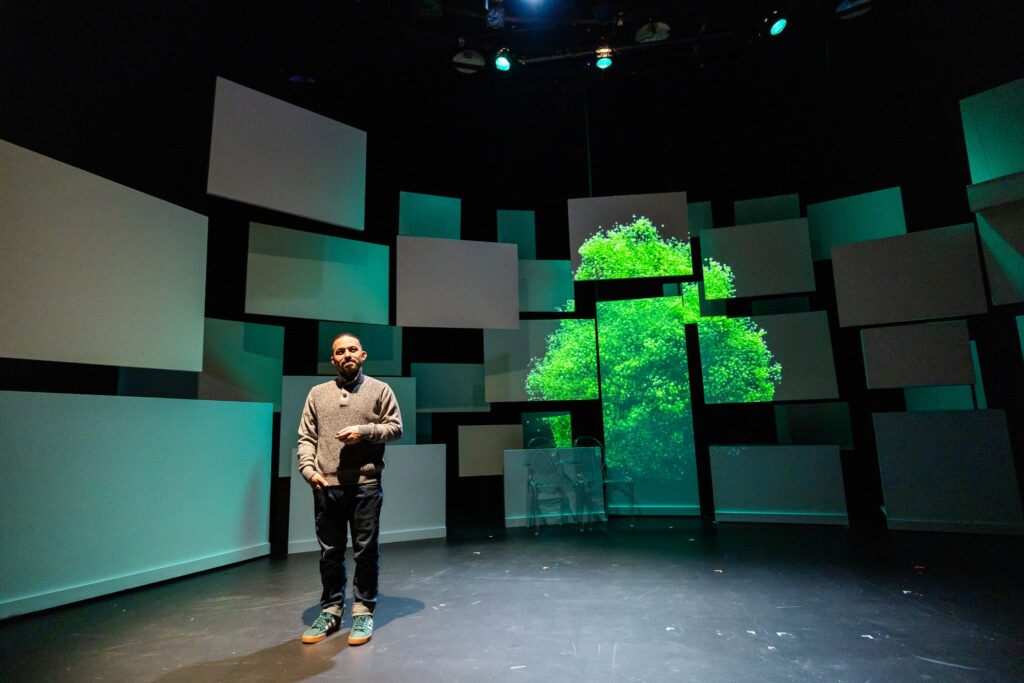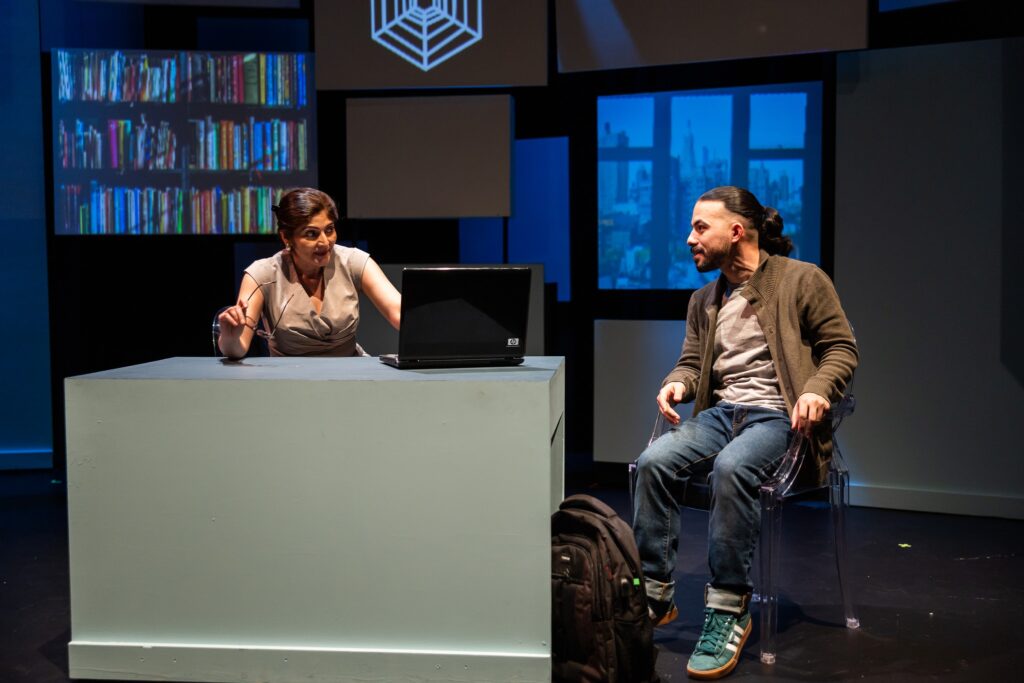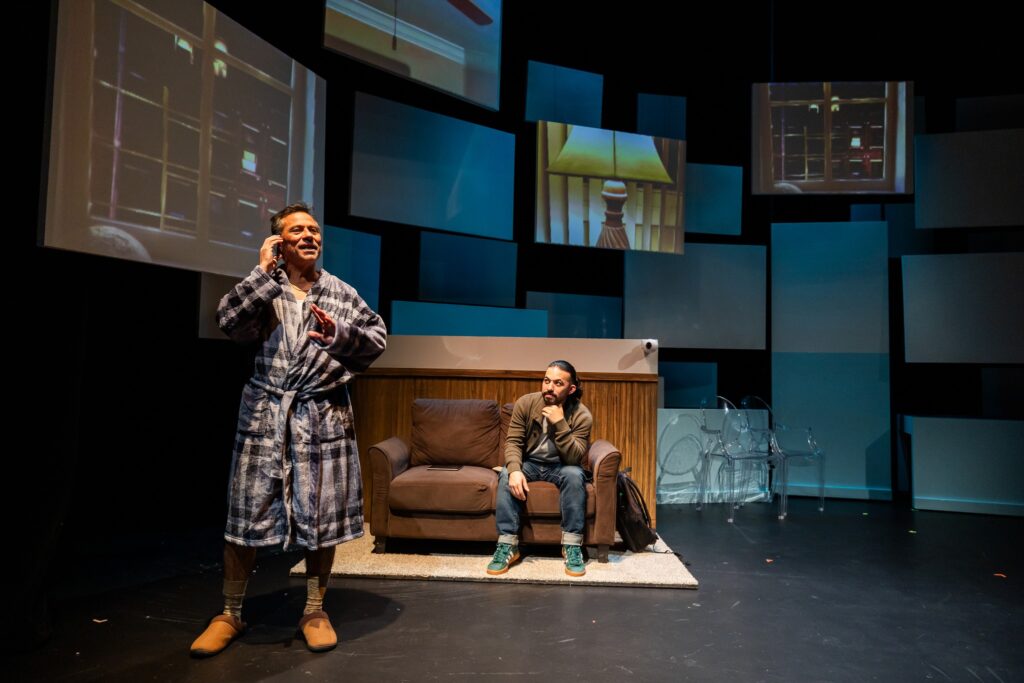
Photos by Nile Scott Studios
“Machine Learning”, by Francisco Mendoza. Directed by Gabriel Vega Weissman. Presented by Central Square Theater in partnership with Teatro Chelsea, 450 Massachusetts Avenue, Cambridge, through February 25.
by Michele Markarian
Arnold is a nursing application created by a young brainiac, Jorge (Armando Rivera), to keep an eye on his alcoholic and cancer-ridden father, Gabriel (the excellent Jorge Alberto Rubio). Named for Arnold Schwarzenegger, whom Jorge had seen as a young boy in “The Terminator,” Arnold’s job is to care for, with the cure being the end goal, Gabriel. But Gabriel is a bit of a problem, as he likes alcohol and doesn’t seem to fear death. For Jorge, whose relationship with Gabriel is fraught with tension, keeping Gabriel alive is key to resolving the issues that rumble between them. Through a series of flashbacks between Gabriel and young Jorge (Xavier Rosario), we learn about Gabriel’s macho expectations for his son, his cruelty, his irresponsibility, and his fondness for alcohol, with the occasional moments of protectiveness thrown in.

Arnold is the bridge between them. Beautifully voiced by Matthew Zahnzinger, who manages to strike the right tone between caring and robotic, Arnold is sometimes given to repetitive phrases, like the annoying “I’m sorry, I don’t understand” (which will make anyone who’s ever had to deal with a computer-generated phone call clench). For the most part, Arnold is a good caretaker, informing Gabriel of AA meeting times, espousing the dangers of drinking, and keeping track of his pain meds. But as Jorge’s academic advisor Anita (a dignified Sugandha Gopal) reminds him, Arnold is an “it, not he.” Arnold is only as good as the man who programmed him, and as we all know, the Terminator did not have the best intentions. In spite of this, Arnold, like Jorge, has a conscience.

Rivera does a credible job as the emotionally immature Jorge, whose desire to tie things up neatly with his father takes precedence over his ambition as a scientist. Jorge is a frustrating character, as his goals are enabling and unrealistic. While we can understand the grown-up Jorge’s desire to help, the scenes between Gabriel and the young Jorge bring emotional resonance to the piece. Rubio veers between charming, cruel and, tragic, and compelling in the way that alcoholics can be. Even as he is relaying that other people in the business he worked for were jealous and Hispanophobic, sabotaging his success, he is not a reliable narrator. As a father to young Jorge, he is frightening, at one point telling his son, “No llores, maricon,” which in Spanish is a pejorative word referring to one’s lack of masculinity. As young Jorge, Rosario nearly steals the show – this kid is a star in the making, with an impressive range that lends verisimilitude to the stress of his childhood. I look forward to seeing more of him on the Boston stage.

Janie E. Howland’s impressive set is the perfect backdrop to blend modern technology with the real world – from Gabriel’s depressing bedsit to Anita’s office to the “files” that show up against the back panels, highlighting key moments in Jorge’s life. Kudos to lighting designer Amanda Fallon and projection designer SeifAllah Salotto-Cristobal for the creation of Arnold, who, in fluorescent, swirling green, dominates all of the panels when he speaks. Let’s hope that AI’s future creators, like Jorge, have a conscience. For tickets and information, go to: https://www.centralsquaretheater.org/

